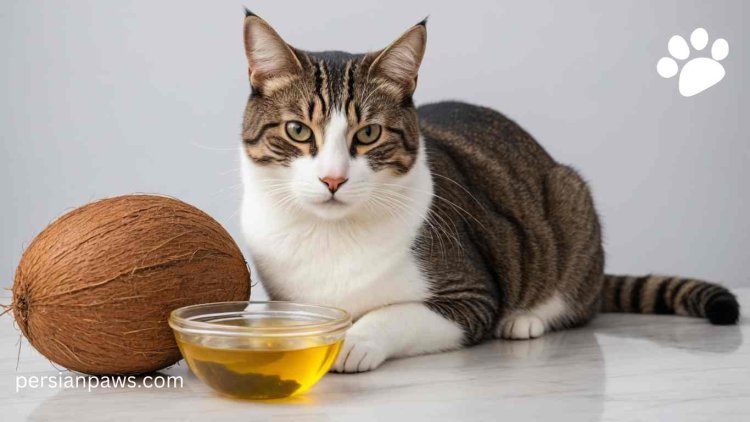How to Get Rid of Worms in Cats Naturally
Give your cat pumpkin seeds, coconut oil, and apple cider vinegar. Keep their litter box clean. Try natural wormwood or ground cloves for a natural deworming.

Table of Contents
- Worms in Cats: Types and Symptoms
- Importance of Regular Veterinary Check-ups
- Natural Prevention Methods for Worms in Cats
- 3.1 Maintaining a Clean Living Environment
- 3.2 Preventing Hunting and Eating Infected Prey
- 3.3 Diet and Nutrition
- Home Remedies for Deworming Cats
- Case Studies and Personal Experiences
- Diet and Nutrition for Supporting a Healthy Immune System
- Environmental Hygiene to Prevent Reinfestation
- When to Seek Professional Help
- Conclusion
Every cat owner knows the joy that these furry companions bring into our lives. But with that joy comes the responsibility of keeping them healthy. One of the common health issues cats face is worm infestations. While many commercial medications are available, some pet owners prefer natural remedies to avoid potential side effects.
This comprehensive guide will help you understand how to get rid of worms in cats naturally, ensuring your pet's well-being without compromising safety.
Worms in Cats: Types and Symptoms
Types of Worms Commonly Found in Cats
1. Roundworms:
● Appearance: Spaghetti-like, white to light brown, can grow up to several inches long.
● Transmission: Ingested through contaminated soil feces, or mother's milk.
2. Tapeworms:
● Appearance: Flat, segmented, rice-like grains found around the cat's anus or in feces.
● Transmission: Often contracted through ingesting infected fleas.
3. Hookworms:
● Appearance: Small, thin worms, hard to see with the naked eye.
● Transmission: Through ingestion of larvae from the environment or through the skin.
Symptoms of Worm Infestations
● Vomiting
● Diarrhea
● Weight loss
● Bloated abdomen
● Lethargy
● Visible worms in feces or around the anus
● Dull coat
Understanding these symptoms and types is crucial for identifying and treating worm infestations early.
Importance of Regular Veterinary Check-ups
Why Routine Check-ups Matter
Regular veterinary check-ups are essential for the early detection and prevention of worm infestations. These check-ups help in:
● Early diagnosis of worm-related issues.
● Monitoring overall health and nutrition.
● Providing tailored preventive care plans.
Expert Recommendations
Frequency:
● Kittens should be checked every 2-4 weeks until three months old.
● Adult cats should have an annual check-up.
Tests:
● Fecal exams to detect worm eggs.
● Blood tests if anemia or other complications are suspected.
Regular vet visits ensure that any signs of worm infestations are caught early, making treatment easier and more effective.
Natural Prevention Methods for Worms in Cats
Prevention is always better than cure, and there are several natural methods to prevent worms in cats.
Maintaining a Clean Living Environment
● Regularly clean and disinfect litter boxes.
● Vacuum carpets and clean floors frequently.
● Wash bedding and toys regularly.
Preventing Hunting and Eating Infected Prey
● Keep your cat indoors as much as possible.
● If your cat must go outside, supervise closely to prevent hunting.
Diet and Nutrition
● Feed a balanced diet rich in nutrients.
● Avoid raw meat and fish, which can carry parasites.
By maintaining a clean environment and preventing visibility to infected prey, you can significantly reduce the risk of worm infestations.
Home Remedies for Deworming Cats
Pumpkin Seeds and Coconut Oil
Pumpkin Seeds:
● Grind a teaspoon of pumpkin seeds and mix with your cat's food daily.
● Effective in eliminating roundworms and tapeworms.
Coconut Oil:

● Administer a small amount (1/4 teaspoon for small cats, 1/2 teaspoon for larger cats) mixed with food.
● Acts as a natural dewormer and improves coat health.
Diatomaceous Earth
● Food-grade diatomaceous Earth:
● Sprinkle 1/4 teaspoon for kittens and 1 teaspoon for adult cats over their food daily.
● The dehydration method kills internal parasites without harming the cat.
Herbal Supplements
Thyme:
● Add a small pinch of dried thyme to your cat's food.
● Possesses anti-parasitic properties.
Oregon Grape:

● Use in moderation as directed by a holistic vet.
● Effective against various intestinal parasites.
Case Studies and Personal Experiences
1. Muffin's Recovery:
● Muffin suffered from roundworms. With a combination of pumpkin seeds and coconut oil, Muffin was successfully dewormed within three weeks.
2. Emily's Cat, Whiskers:
● Emily used diatomaceous earth to treat Whiskers’ tapeworm infection.
Within a month, Whiskers’ symptoms disappeared.
3. Shelter Cats:
● A shelter used diatomaceous earth and raw garlic, observing a significant decrease in worm infestations among 40 resident cats over six months.
These case studies highlight the effectiveness of natural deworming methods when used correctly.
Diet and Nutrition for Supporting a Healthy Immune System
Importance of a Balanced Diet
A healthy immune system can help prevent and fight worm infestations. Feeding your cat a balanced diet ensures they are getting all the necessary nutrients.
Specific Dietary Recommendations
High-Quality Protein:
● Ensure your cat's diet includes high-quality animal protein to support muscle health and immune function.
Omega-3 and Omega-6 Fatty Acids:

● Found in fish oil and flaxseed oil, these fatty acids help maintain a healthy coat and skin, which can prevent parasitic infestations.
Probiotics:
● Add probiotics to support gut health and enhance the immune system.
Antioxidants:
● Include antioxidant-rich foods like blueberries and spinach to fight off infections.
A balanced diet not only keeps your cat healthy but also makes them less susceptible to worm infestations.
Environmental Hygiene to Prevent Reinfestation
Maintaining a Clean Living Space
A clean environment is critical to prevent re-infestation. Here are some tips:
Litter Box Hygiene:
● Scoop the litter box daily and thoroughly clean it weekly.
House Cleaning:
● Vacuum carpets, clean floors, and wash cat bedding regularly to remove any potential parasite eggs.
Outdoor Areas:
● If your cat goes outside, ensure the outdoor area is clean and free from feces.
Preventing Contact with Contaminated Soil or Feces
Avoid Overcrowding:
● Ensure your cat has enough space and isn’t overcrowded with other animals.
Regular Inspections:
● Regularly inspect outdoor areas for signs of contamination and clean as necessary.
Maintaining a clean environment helps break the lifecycle of worms and reduces the risk of re-infestation.
When to Seek Professional Help
Signs That Indicate Professional Intervention
While natural remedies are effective, there are times when professional help is necessary. Seek veterinary care if:
● Your cat shows severe symptoms like persistent vomiting, diarrhea, or significant weight loss.
● Natural remedies do not show improvement within a few weeks.
● Your cat is pregnant or has a compromised immune system.
Choosing the Right Veterinarian
● Look for vets who are open to discussing natural remedies.
● Ensure they have experience with treating worm infestations in cats.
● Ask for recommendations from other pet owners.
Professional intervention ensures your cat receives the best possible care when needed.
Conclusion
Natural deworming methods offer a safe and effective way to keep your cat healthy. By understanding the types of worms, maintaining regular veterinary check-ups, and using natural remedies, you can protect your cat from infestations.
Remember, a balanced diet and a clean environment are crucial in preventing worms. If you notice severe symptoms or no improvement with natural remedies, seek professional help immediately.
What's Your Reaction?















